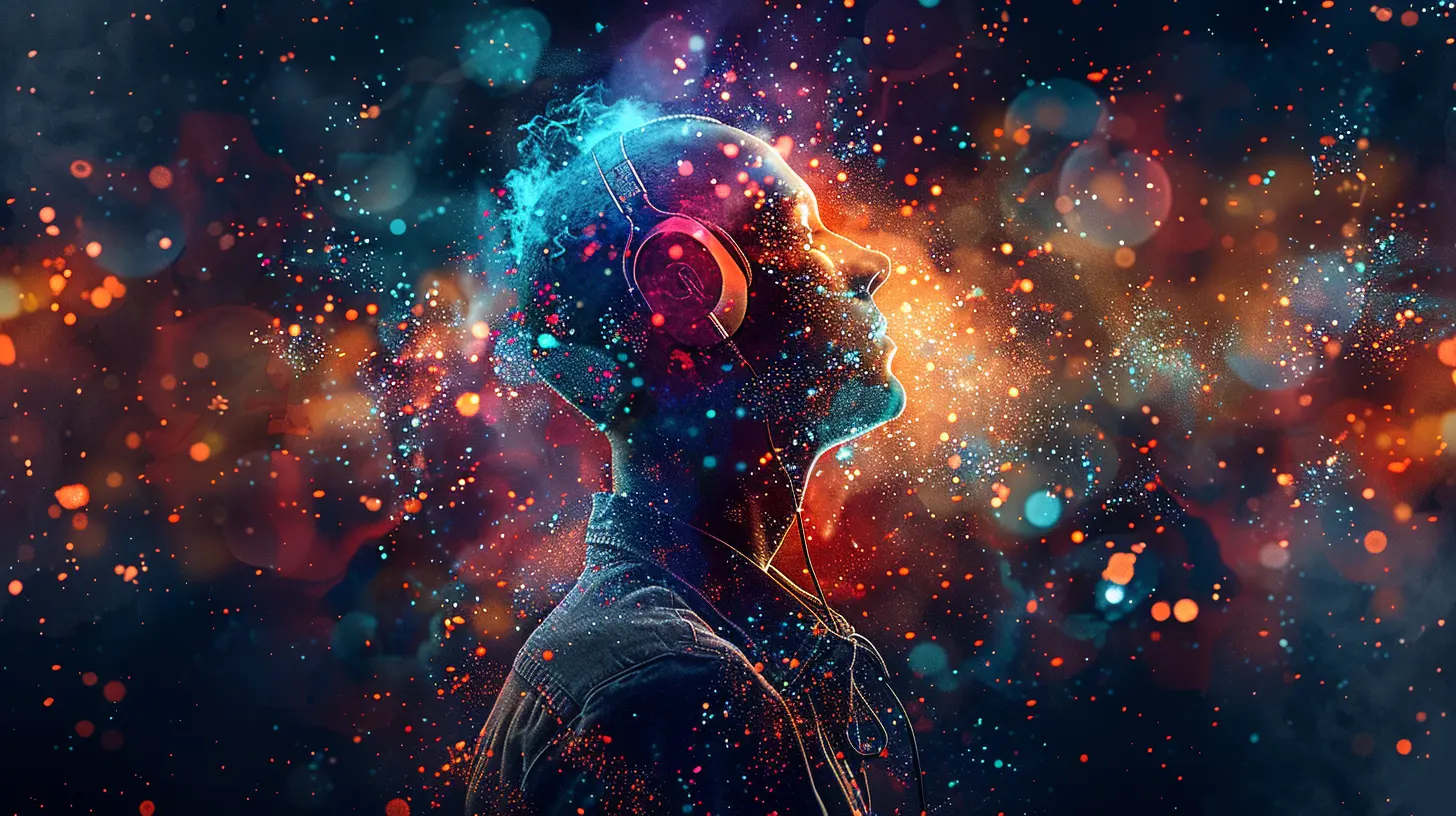The Impact of Music on the Human Mind
10 August 2025
Music is all around us. Whether it’s the background melody in a café, the song that brings back old memories, or the beat that gets your heart racing during a workout—music influences our emotions, thoughts, and even behaviors in ways we don’t always realize. But have you ever wondered why music has such a powerful impact on the human mind? Let’s dive into the fascinating connection between music and psychology.

How Music Affects the Brain
Music isn't just something we hear—it’s something we feel. The moment a song plays, our brain gets to work processing the melody, rhythm, and lyrics. Different areas of the brain light up, especially the auditory cortex, hippocampus, and amygdala, all of which play a role in processing sound, memory, and emotions.1. Music and Emotion
Have you ever listened to a song and suddenly felt a wave of nostalgia or sadness? That’s because music interacts with the amygdala, the part of the brain responsible for regulating emotions. Certain melodies can stimulate the release of dopamine, often called the "feel-good" chemical, which enhances pleasure and motivation.Music can also trigger the release of oxytocin, a hormone linked to bonding and trust. That’s why listening to music with friends or attending concerts can create a sense of connection and unity.
2. Music and Memory
Ever heard an old song and instantly found yourself transported back to a specific place and time? That’s music’s powerful link to memory. The hippocampus, a brain region associated with memory formation, is strongly activated when we listen to familiar tunes.This is why music therapy is often used for patients with Alzheimer’s or dementia. Even when other memories fade, songs from the past can bring back details, emotions, and even words patients thought they had forgotten.
3. Music and Concentration
Do you listen to music while studying or working? Some people swear by it, while others find it distracting. The effect of music on focus depends on the type of music and the individual. Instrumental music or classical compositions can create a calm atmosphere, improve concentration, and stimulate creative thinking. On the other hand, loud or lyric-heavy songs can be distracting, pulling attention away from the task at hand.4. Music and Stress Reduction
Music has a magical way of easing stress. Slow, soothing music can reduce cortisol levels (the stress hormone) and promote relaxation. This is why spa treatments often include soft music in the background—because it literally helps our muscles and mind unwind.Listening to calming tunes before bed can also improve the quality of sleep. In fact, many people find that soft, slow-tempo music helps them fall asleep faster and sleep more deeply.

The Psychological Benefits of Music
Beyond simply altering brain activity, music offers a range of psychological benefits that can enhance well-being.1. Boosts Mood and Happiness
Ever noticed how listening to upbeat music can instantly lift your mood? That’s because music triggers the release of dopamine and serotonin—two chemicals that contribute to feelings of happiness.Energetic songs can combat fatigue, elevate motivation, and even serve as a natural antidepressant. When life feels overwhelming, playing an uplifting tune can make a world of difference.
2. Enhances Social Connections
Music is a universal language—it brings people together. Whether it’s singing along at a concert, dancing at a party, or simply sharing a playlist with a friend, music strengthens social bonds.Musicians, choirs, and bands often develop deep connections through their shared experiences. Even singing as a group has been shown to synchronize heartbeats and boost feelings of belonging.
3. Encourages Self-Expression
For many, music is more than just something to listen to—it’s a way to express themselves. From writing lyrics to playing an instrument, music gives people an outlet for emotions and creativity.Sometimes, a song says exactly what we feel but can’t put into words. That’s why music is such a powerful tool for emotional release and healing.
4. Helps with Anxiety and Depression
Music therapy is commonly used to help people cope with anxiety, depression, and PTSD. Soft music can have a calming effect, lowering heart rate and blood pressure, while rhythmic drumming or upbeat songs can provide an energy boost.Studies show that listening to music can reduce symptoms of depression, promote relaxation, and even improve overall mental health. Music acts as a form of emotional regulation, helping people process their feelings in a safe and comforting way.

The Science Behind Music Therapy
Music therapy is a growing field that uses music to improve mental, emotional, and physical health. Trained therapists use different techniques such as playing instruments, singing, or simply listening to music to help people cope with challenges.1. How Music Therapy Works
Music therapy works by engaging different parts of the brain linked to emotion, memory, and movement. Sessions are carefully designed to help individuals achieve specific goals, whether it’s stress reduction, emotional healing, or cognitive development.This type of therapy is beneficial for:
- People with anxiety or PTSD
- Patients with dementia or Alzheimer’s
- Children with autism
- Individuals recovering from brain injuries
- Anyone looking to improve mental well-being
2. Benefits of Music Therapy
Research shows that music therapy can:✅ Reduce anxiety and stress
✅ Improve communication and social skills
✅ Enhance emotional expression
✅ Help with pain management
✅ Boost memory and cognitive function
Music therapy may not be a cure-all, but it provides a safe, effective way to promote healing and emotional growth.

Can Music Influence Behavior?
Absolutely! Music has the power to shape the way we think, feel, and act. Different types of music can trigger different behaviors.🎵 Fast-tempo music can increase energy and motivation—great for workouts!
🎵 Slow, soft music can promote relaxation and reduce stress.
🎵 Sad music can help process emotions and even be comforting in tough times.
🎵 Loud, aggressive music might increase adrenaline and even agitation in some cases.
Retail stores and restaurants often use music strategically. Have you ever wondered why fancy restaurants play slow music? It encourages customers to dine longer and spend more. Meanwhile, fast-food joints play energetic music to keep things moving quickly.
Final Thoughts
Music is more than just entertainment—it’s a psychological powerhouse that influences our emotions, memory, concentration, and overall well-being. From boosting happiness to easing stress, music has an undeniable impact on the human mind.So next time you hit play on your favorite song, remember—you’re not just listening. You’re experiencing something truly profound.
all images in this post were generated using AI tools
Category:
PsychologyAuthor:

Eliana Burton
Discussion
rate this article
1 comments
Vex Parker
This article beautifully explores how music influences our emotions and cognitive functions. The connection between melodies and mental states is fascinating, highlighting music's therapeutic potential. Understanding this relationship can enhance mental health strategies and enrich our daily lives. A must-read for music lovers and psychology enthusiasts alike!
September 3, 2025 at 2:54 PM

Eliana Burton
Thank you for your thoughtful comment! I'm glad you found the exploration of music's impact on emotions and cognition interesting. It truly is a powerful tool for enhancing well-being!


